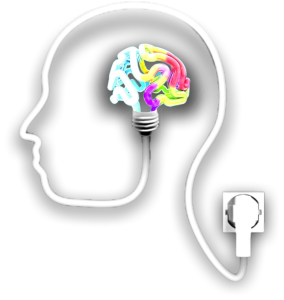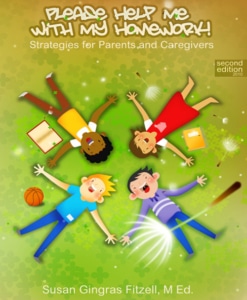We learn through all of the intelligence styles, but we have certain learning preferences that are stronger than others. Choose strategies that support your student’s strongest learning preference when helping them with homework or studying.
For Verbal/Linguistic Learners
 These learners learn by saying, hearing and seeing words. They can easily memorize names, dates, places and trivia. To help verbal/linguistic learners:
These learners learn by saying, hearing and seeing words. They can easily memorize names, dates, places and trivia. To help verbal/linguistic learners:
- • Use descriptive language.
- • Have them study by reading, writing, telling stories, playing word games and working with jokes and riddles.
- • They are good at creating imaginary worlds.
- • Create crossword puzzles for practice at www.puzzlemaker.com
For Logical/Mathematical Learners
These learners are adept at categorizing, classifying and working with abstract patterns and relationships. They work well with reasoning, numbers, abstractions, logic, problem-solving and moving from the concrete to the abstract.
- • Compare and contrast ideas.
- • Create a timeline.
- • Classify concepts/objects/materials.
- • Read or design maps.
- • Use a Venn diagram to explain…
- • Teach using technology
For Bodily/Kinesthetic Learners
The brain’s motor cortex, which controls bodily motion, is the key to the intelligence of bodily/kinesthetic learners. These learners process knowledge through bodily sensations and need to touch, move and interact with space.
- • Create hands-on projects.
- • Conduct hands-on experiments.
- • Create human sculptures to illustrate situations.
- • Reenact great moments from history.
- • Make task or puzzle cards for…
For Visual/Spatial Learners
Visual/spatial learners rely on their sense of sight and the ability to visualize an object.
- • They create – Make a visual organizer or memory model of the material being learned.
- • Graph the results of a survey or a course of study.
- • Create posters or flyers.
- • Create collages.
- • Draw maps.
- • Color-code the process of…
For Musical/Rhythmic Learners
Musical/rhythmic learners recognize tonal patterns. For optimal learning, suggest that they hum or sing the information they want to grasp or have them move their bodies while they study.
- • Create “raps” (key dates, math and poems) or write new lyrics to a song so that it explains…
- • Identify social issues through lyrics.
- • Analyze different historical periods through their music.
- • Make up sounds for different math operations or processes.
- • Use music to enhance the learning of…
For Interpersonal Learners
Person-to-person relationships and communication are necessary for interpersonal learners. They study and work best with others.
- • Analyze the relationships in a story.
- • Review material/concepts/books orally.
- • Discuss/debate controversial issues.
- • Find relationships between objects, cultures and situations.
- • Role-play a conversation with an important historical figure.
- • Solve complex word problems in a group.
- • Peer Tutor the subject being learned.
For Intrapersonal Learners
Almost the exact opposite of interpersonal learners, intrapersonal learners thrive when working alone. Self-paced instruction and individualized projects work best with these students. Suggest that intrapersonal learners keep a daily journal, as their thoughts are directed inward. They have a great degree of self-understanding and they rely deeply on their instincts.
- • Keep a journal to demonstrate learning.
- • Analyze historical personalities.
- • Imagine being a character in history, a scientist discovering a cure or a mathematician working on a theory and describe or write about what you imagine to demonstrate learning.
For Naturalist Learners
Naturalist learners observe and understand the organized patterns in the natural world. Provide them with visualization activities and hands-on activities that are based on nature. Bring the outdoors into their learning environment whenever possible. Study in ways that call on the naturalist learner’s abilities to measure, map and chart observations of plants and animals.
- • Sort and classify content in relation to the natural world.
- • Interact with nature through field trips.
- • Encourage learning in natural surroundings.
- • Categorize facts about…

